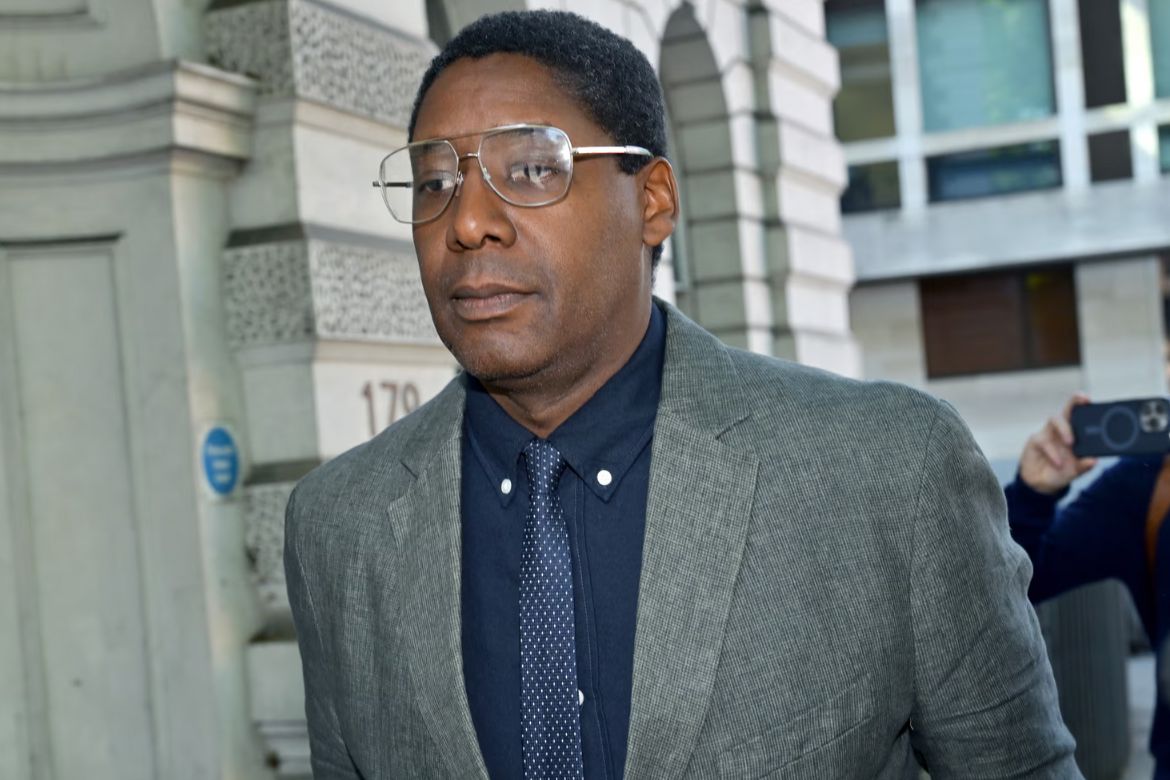In a case that has reverberated across the global art community and security circles, Oghenochuko “Ochuko” Ojiri, a British art expert and former BBC television personality, has been sentenced to 30 months in prison for conducting business with a man accused of financing Hezbollah, a group designated as a terrorist organization by both the UK and the Gulf Cooperation Council (GCC) nations.
🕵️♂️ From Gallery Walls to Criminal Courts
Ojiri, best known for his appearances on Bargain Hunt and Antiques Road Trip, was found guilty of failing to disclose eight transactions totaling £140,000 ($166,150) between 2020 and 2021. The recipient of these sales was Nazem Ahmad, a Lebanese-Belgian businessman and art collector who has long been under sanctions by the US and UK for allegedly laundering money and trafficking conflict diamonds—known as “blood diamonds”—to support Hezbollah operations.
According to The Gulf Talk’s London Bureau, the case is the first of its kind where a UK-based art dealer has been convicted under section 21A of the Terrorism Act 2000—a move welcomed by counterterrorism experts and finance regulators.
⚖️ A Prosecution Rooted in National Security
The investigation, led by the UK’s National Terrorist Financial Investigation Unit, began two years ago and culminated in Ojiri’s arrest after authorities found he had knowingly ignored warnings about Ahmad’s background. Prosecutors presented evidence that Ojiri had read online articles, discussed the sanctions with colleagues, and yet proceeded with the sales.
“This was not a case of ignorance,” stated prosecutor Lyndon Harris. “Mr Ojiri demonstrated full awareness of Ahmad’s status and the risks involved but chose to proceed out of greed and prestige.”
🖼️ Art as a Laundering Tool – A Global Concern
The UK court also revealed that invoices and documentation tied Ojiri directly to Ahmad’s transactions. A 2024 raid on a high-security art storage facility near Heathrow Airport led to the seizure of nearly two dozen artworks linked to Ahmad, which authorities believe were part of a broader network used to channel funds to Hezbollah.
This case echoes growing concern in the Gulf region, where art markets and luxury assets are increasingly scrutinized as potential conduits for sanction evasion and terror financing.
🏛️ Repercussions Beyond Borders
Commander Dominic Murphy, head of the Metropolitan Police’s Counter-Terrorism Command, called the conviction a “landmark moment” and urged the global art community to enhance compliance protocols.
“The message is clear: the art market can no longer be a blind spot in financial transparency,” he said.
Presiding judge Justice Bobbie Cheema-Grubb described Ojiri’s downfall as “the nadir of his public career,” lamenting that he chose “profit and profile over principles.”
🌍 The Gulf Region Responds
Security analysts in the Gulf note that this case underscores the transnational nature of terror finance, where seemingly unrelated sectors—from luxury goods to collectibles—can be exploited to funnel money to extremist networks.
The GCC has long advocated for enhanced cross-border cooperation on terror finance monitoring, and this case is expected to prompt a renewed push for international due diligence—especially in high-value asset markets.
🎭 A Public Image in Ruins
Ojiri’s reputation, once tied to prime-time TV and antique expertise, is now marred by what the UK press is calling “a shocking betrayal of public trust.” His profiles have been removed from BBC platforms, and insiders say the scandal could lead to broader inquiries into the role of public figures in regulated markets.
🧾 Who is Nazem Ahmad?
- Sanctioned in 2019 (US) and 2023 (UK)
- Accused of managing an international financing scheme for Hezbollah
- Allegedly laundered millions through fine art and diamonds
- Charged by US authorities in 2024 alongside eight associates
- More than $160 million in art and £1 million in UK assets under investigation
📌 Final Thought: Art Cannot Be a Safe Haven for Crime
The Gulf Talk views this case as a wake-up call to both public and private sectors. While art is a symbol of culture and creativity, its financial value must not be allowed to become a tool for harm.
The conviction of Oghenochuko Ojiri is a reminder that prestige does not grant immunity, and that due diligence is now a non-negotiable pillar of any industry touching global finance.



